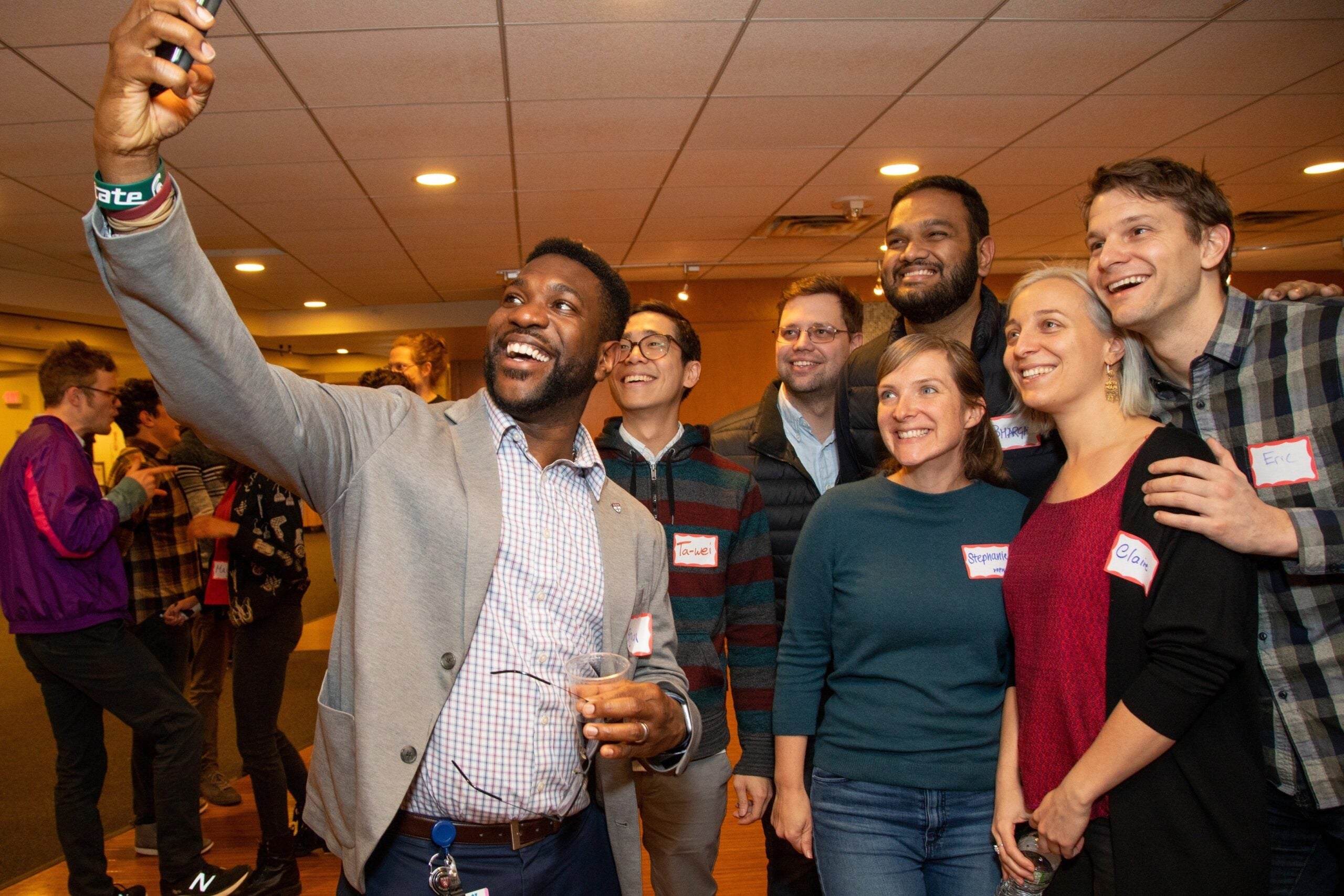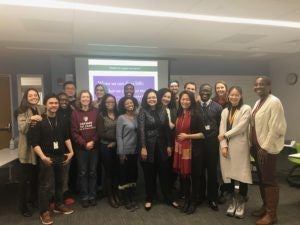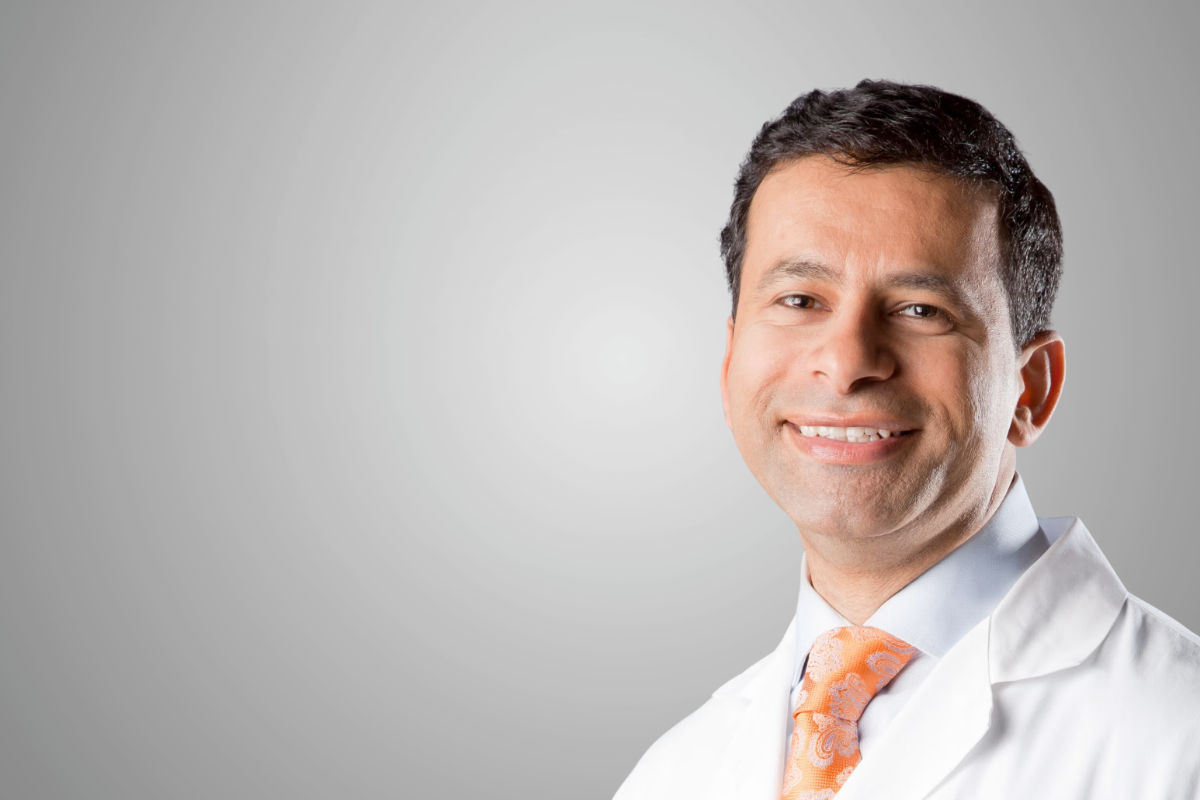Cohort experience of doctoral program appeals to this extrovert

Bryan Buckley, the first African American male to graduate from the School’s DrPH program, wanted to grow and learn from fellow students
May 26, 2020 – Bryan Buckley, DrPH ’20, comes from a big Caribbean family. “One grandfather is one of 18, and my other grandfather is one of 10. One of my grandmas is one of six, and my other grandma is one of seven,” he says. “We’re scattered across the Caribbean and the world—Canada, Europe, Asia.”
On April 6, 2020, many of his family members started logging into Zoom to watch Buckley defend his thesis on advanced illness support in Massachusetts. He had been practicing his presentation for weeks and had done half a dozen dry runs to work out the kinks and adjust to the virtual format. Like everyone else graduating this year, Buckley had never envisioned that he’d be defending his thesis through an online platform amidst a historic pandemic. Now the culmination of his education had the feel of a family reunion with unusually high stakes.
“It was a really great moment,” he said. “I was thinking that if I had done my defense in person, maybe 15 people would be there. But now that it was virtual, family members and friends from all over the world were able to join me.” Before Buckley started his presentation, he had one request for his mom: “Make sure your computer is muted.”
Buckley, who was recently elected 2020 Alumni Class President and is graduating from Harvard T.H. Chan School of Public Health’s Doctor of Public Health (DrPH) program, has long been interested in how health systems operate and how change happens within the sphere of public health. He studied microbiology as an undergrad at Michigan State University and stayed at the school to earn his master of public health degree. During his time as a student, he became a board member for the Michigan Public Health Association, where he worked on policy statements related to the Flint water crisis. He also helped push Michigan State University to become a tobacco-free campus.
When Buckley started researching doctoral programs, the interdisciplinary cohort model of the School’s DrPH struck him as essential to his style of learning. “Honestly, it wasn’t the Harvard name that drew me in. It was the structure and innovative approach of the DrPH program,” he says. “I’m very extroverted, and I wanted that cohort experience so I could meet people, grow with them, and learn from them.”
Buckley adjusted to life in Boston and on campus quickly. He became involved in student government, which led to him being President of the Harvard Graduate Council and advocating for all 12 graduate and professional schools across Harvard. He forged close bonds with many of the other 17 students in his cohort. “My DrPH cohort was my support system,” he said. “The interdisciplinary, leadership focus is what really set us apart and makes our cohort experience different from other doctoral cohorts.”
Over the course of the three-year program, Buckley had several different opportunities to work in the field and conduct research. He was part of a team of DrPH students that collaborated with clinical teams and strategic planners at McLean Hospital in Belmont, Mass., to study the opportunities and challenges of delivering mental health services virtually.

For his summer immersion program in 2018, Buckley started working at Blue Cross Blue Shield of Massachusetts (BCBSMA) as an internal consultant focused on advanced illness support programs. “My research was around leading and evaluating a pilot program that was focused on providing a holistic range of services for patients with a serious illness,” he says.
His work at BCBSMA laid the foundation for his thesis. Perhaps more importantly, it helped him chart out the next steps in his career. Buckley will soon start working as a safety and quality leadership fellow at MedStar Health, a large health system in the Maryland and Washington, D.C. area, not far from where Buckley grew up in Silver Spring, Maryland.
There he’ll be working in the Institute for Safety and Quality on a newly launched program to understand and mitigate diagnostic errors across the health system. His job will include research, a bit of teaching, and developing methods to communicate information about diagnostic error prevention across the whole of MedStar. He’s excited to take on the new challenge. And he’s equally excited to get back near his family. “I’m officially heading back home,” he says.
photos: (top) Lisa Abitol, (bottom) courtesy of Bryan Buckley


